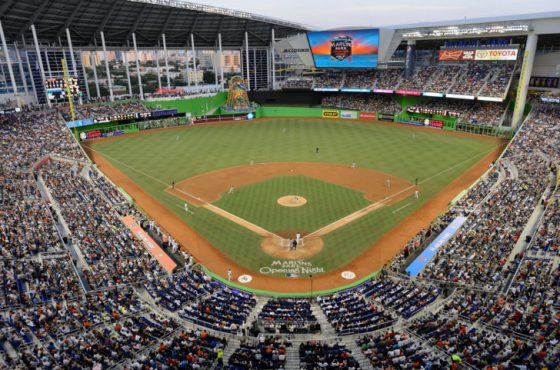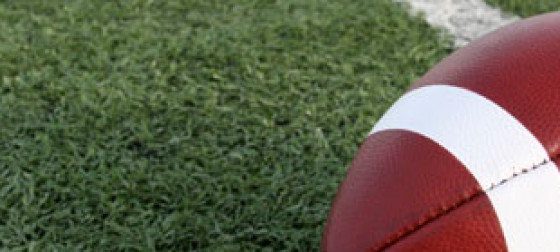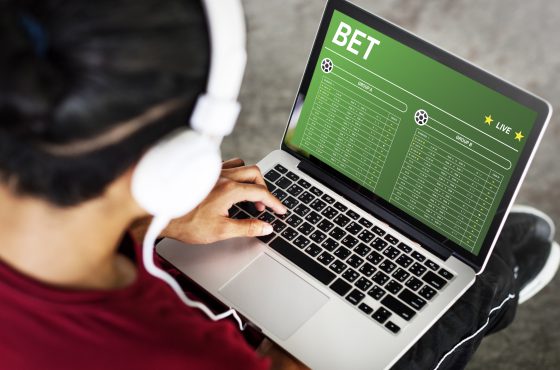How States Will Respond to a Federal Sports Betting Repeal

New Jersey is one state of a dozen seeking to transform the sports betting landscape in America
We’re getting closer and closer to the Supreme Court’s ruling Murphy vs. the NCAA, which means speculation is alight across the nation as to what the immediate impact of a post-prohibition era of sports betting would look like. How will the states handle it? How will offshore sportsbooks adapt to the changes? How about the leagues themselves? The players? There are too many questions to answer and too little information. But that doesn’t mean we can’t look at some possible scenarios playing out at different levels of the industry, i.e. the state level, internationally, in Vegas, etc. So without further ado, let’s dive in and try to tackle some of these questions without getting our heads in a knot.
How States Will Respond
Many in and around the major leagues have begun harboring a growing belief in a grim outcome for the SCOTUS ruling. That outcome may involve the Supreme Court turning the responsibility over to the state level, which could very well lead to a—excuse my language—legislative shit storm as states scramble to figure out how to regulate a sports betting industry that may become something akin to the Wild West or the current cannabis industry making rapid advancements in states nationwide.
Leaving the ball in the courts of the state may lead to greater trouble on the leagues’ part trying to regulate and control integrity issues. There would need to be in place some sort of interstate network of gaming officials working in tandem to monitor the data and minutiae that will inevitably weigh on the individual state-level industries. Or perhaps not. Nevada has gotten by just fine, but they also haven’t had to contend with other states operating at a similar level of legality.
The current states on record pursuing legalized sports betting are Connecticut, Illinois, Massachusetts, New Jersey, New York, West Virginia, Indiana, Iowa, Kansas, Missouri, and Rhode Island.
The leagues have lobbyists in more than half of those states. They’re most likely spending six figures each month, though that number is quite small in comparison to the gains they could realize if their model is widely accepted. Granted, recent reports show that concessions are being made in multiple bills in multiple states suggesting that the leagues should receive a significantly smaller cut of the handle than they’ve been lobbying for.
The major league lobbying also reflects their growing pessimism regarding their chances to win the NJ sports betting case. They’re at least preparing for the “worst-case” scenario in which states are given free rein to regulate sports betting at their own discretion. A decision in that case could come as early as the first week of April, although it’s far more likely that we won’t see any headway made in the ruling until June.
Here’s a look at what each state is doing to advance their own betting bills.
Connecticut
Connecticut has been a focal point for the debate surrounding sports betting for months now. Lawmakers there have held several hearings, dedicating as much time to the issue as perhaps any other state so far. Theirs is one of only a few with an enabling law on file, though regulations are still pending some additional work.
It appears a near certainty that Connecticut sports betting will move forward, and the leagues would very much like to influence the specifics. The NBA and MLB have proposed their model legislation to lawmakers there on several occasions, mostly without success. In fact, the pushback against their testimony has created some quotable moments during committee hearings.
In February, the leagues hired lobbyists from both Orrick, Herrington & Sutcliffe and Hartford-based Capitol Strategy Group to represent their interests. The NBA and MLB retain Orrick in several states, usually partnering them with a local group like Capitol Strategy.
The leagues now employ at least four lawyers apiece in Connecticut, paying their two firms a total of $15,500 per month.
Illinois
Illinois is a leverage state for sports betting, having strong ties to both the “sports” and “betting” parts of the equation.
On the sports side, Chicago hosts professional teams across all four major leagues. Collegiate teams draw significant attention in the midwest, too, of which Illinois has several. It’d be fair to say that sports drive a lot of tourism and revenue to the state.
So do casinos, though. Illinois is a gambling state with ten riverboat casinos, around 30 pari-mutuel betting facilities, and an enormous network of slot parlors. Those parlors alone paid more than $325 million in state taxes last year.
Illinois sports betting remains illegal under state law, but there are a handful of bills on file aiming to change that. And the leagues seem to be taking note. They’ve employed lobbyists from All-Circo and Shaw Decremer Consulting, though the financial terms are not publicly disclosed.
Some of the leagues’ representation in Illinois comes without a price tag, anyhow. Sen. Napolean Harris is a former NFL linebacker, and his sports betting bill is based on their preferred model.
Massachusetts
Massachusetts isn’t very far down the road toward legalizing sports betting, but the pieces seem to be coming together. The first two bills were introduced this year, both of them study bills looking to create an exploratory commission. Some of that exploration is already underway separately, too.
The Massachusetts Gaming Commission has begun to educate lawmakers about sports betting, as evidenced by their recent white paper. They’re cautious with their revenue estimates, but they do recognize the consumer benefits that come with a regulated market. The existing and planned commercial casinos are on board with the idea, too.
In February, the NBA and MLB hired Boston-based Smith, Costello & Crawford, and they’ve since added Orrick lobbyists to their registration in Massachusetts. There haven’t been any hearings or testimony yet as far as we’re aware, but it should make for an insightful showdown when the time comes.
New Jersey
New Jersey is the linchpin for legalized sports betting in the US. If it doesn’t win its case in the Supreme Court, the rest of the discussion becomes mostly irrelevant. Most states’ sports betting bills/laws contain activation clauses that hinge on the result.
Experts seem to think NJ will prevail in court, though, and stakeholders are preparing as if they do, too. Monmouth Park racetrack has already installed a sports bar in-waiting, and there are early plans for sportsbooks at more than one Atlantic City casino.
The state already has a sports betting law in the books — that’s the source of the Supreme Court case — but it will still need to establish regulations if it’s permitted to do so. Once again, the leagues will do what they can do get their model adopted in the Garden State, although that seems like a longshot. After all, they’re the ones who have been litigating against New Jersey.
In February, the NBA and MLB hired lawyers from Trenton’s Advocacy & Management Group to lead their New Jersey advocacy.
New York
Registrations: MLB & NBA
- Cordo & Co ($10,000/month)
- Patrick B. Jenkins & Associates ($8,000/month)
- The Parkside Group ($12,000/month)
- Riddett Associates ($8,000/month)
- Stanley Schlein (MLB only, $5,250/month)
New York was on our previous list in February, but it’s worth highlighting again after another look.
There are now at least five NY firms on retainer to lobby for the NBA and MLB. And most of those firms have several lawyers dedicated to the issue. The Parkside Group, for example, has five on the case. In total, the leagues are spending $43,250 per month to lobby in New York alone.
That should be a good indication of the weight they’re put into the state’s efforts, which are moving along briskly. A series of bills have been introduced this year, some of which follow the leagues’ model and some of which do not. The most-recent one contains a modified version of their blueprint, reducing their integrity fee from one percent to 0.25 percent of handle.
It seems league lobbying efforts might be having an effect on NY sports betting.
West Virginia
Apart from New Jersey, West Virginia is the only other state on this list that has already legalized sports betting. WV sports betting became law without a signature from Gov. Jim Justice, and the reasons for his inaction eventually became clear.
For one thing, the governor’s family owns The Greenbrier, one of the five gaming establishments that will be permitted to offer sports betting. Signing off on the bill could be taken as poor optics.
But the governor also expressed sympathy for the leagues’ position during interviews with local media. He indicated that he may call a special session urging lawmakers to revisit the specifics of the law they just crafted. Any change seems unlikely given the broad support at passage, but it does provide a small opening for the leagues’ crowbar.
Legal Sports Report has been aware of lobbyist activities in the state for several months, but records weren’t e-filed back in February. They are now, though, and they disclose registrations from a handful of firms, including Orrick, on the leagues’ behalf.
Lottery representatives say they could be ready to accept wagers within 90 days of a Supreme Court ruling, so time is of the essence.
Moving Forward
As I stated earlier, it’s still largely unclear what the ruling will be in the Supreme Court, but the reality of legitimized sports betting is shifting already as a result of this legislative battle. In the coming months, we’re sure to see a number of further amendments to state-sponsored sports betting bills and bills seeking to alter their old laws to fit this fast approaching new reality.





